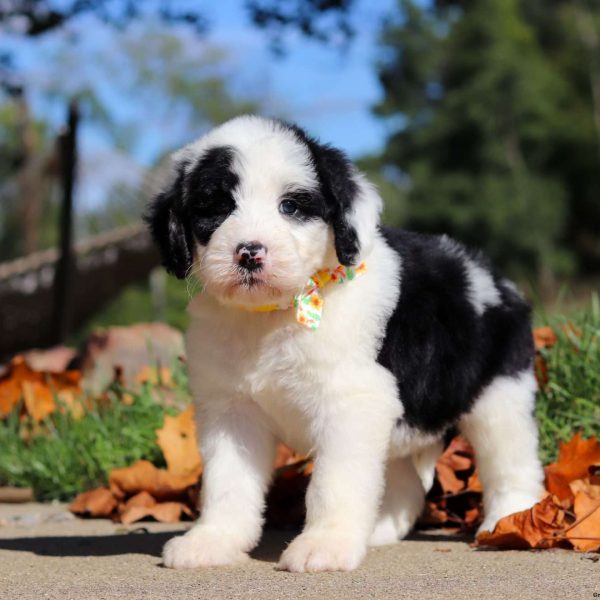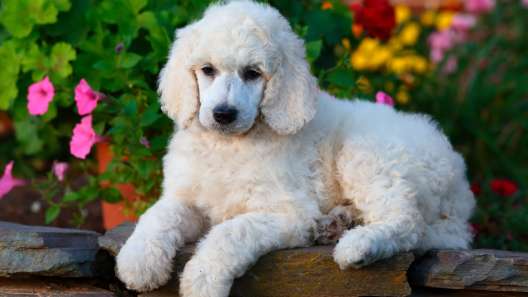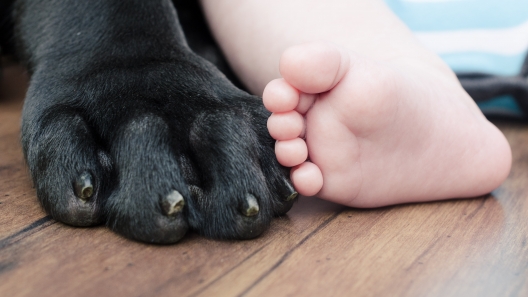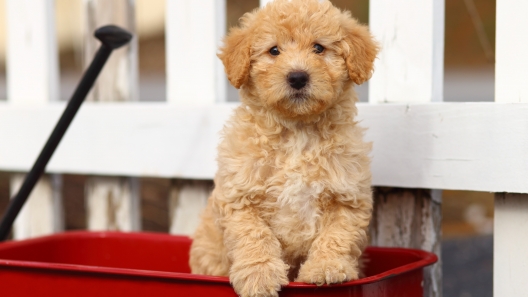
-
Activity Level:
high
-
Shedding Level:
low
-
Grooming Level:
high
-
Trainability:
high
-
Good for Novice Owners:
high
-
Adaptability:
moderate
-
Kid/Pet Friendly:
often
-
Prey Drive:
low
-
Watchdog:
chill
- Average Size: Medium
- Average Lifespan: 12-15 years
- Registered?: other
Sheepadoodle Dog Breed Information
Overview
Temperament
Adaptability
Health
Owner Experience
Grooming
Activity Level
Size
Life Span
Did You Know?
A Sheepadoodle is a cross between a Standard Poodle and an Old English Sheepdog. A Miniature Sheepadoodle is a cross between a Miniature Poodle and an Old English Sheepdog. A Sheepadoodle can be an F1 or an F1b. F1 Sheepadoodles are a first generation, which means their parents are an Old English Sheepdog and a Poodle. An F1b Sheepadoodle’s parents are a Sheepadoodle and a Poodle.
They are often confused, at least in name, with Shepadoodles, but they are not the same dog. Shepadoodles are a cross between a Poodle and a German Shepherd. Sheepadoodles are beautiful dogs inside and out. They tend to be extremely friendly and absolutely love their families.
Because they are mixed with a Poodle, there is a chance that their coat will be low-shedding. Their kind disposition and energetic personality make them a good fit for families. Although they are not purebred dogs, and therefore are not recognized by the AKC, they are recognized by other dog registries and clubs.
The International Designer Canine Registry, American Canine Hybrid Club, and more all recognize the Sheepadoodle. In addition to making a great family pet, Sheepadoodles also make great therapy dogs.
A well-socialized Sheepadoodle is an intelligent and active dog who tends to be naturally friendly, calm, and sociable. They tend to get along well with other dogs, pets, and children. Sheepadoodles tend to be expressive and intuitive. They seem to innately know how to be gentle and quiet with younger children.
Plus, they’ll keep you entertained with their playful personalities, comedic antics, and expressions. They are a combination of a companion and working dog that loves their family and is devoted to them.
This dog breed is moderately adaptable. Due to their exercise needs, they tend to be a better fit for homes with large yards. They can adapt to apartment living, as long as they get plenty of serious exercise every day.
They tend to do best in moderate and cooler climates, but can adapt to other types. As with most dogs, they are sensitive to heat and extreme cold. Because they love their families, have a lot of energy, and get bored easily, they do not like to be left alone for long periods of time.
Because the Sheepadoodle is a mixed breed, they can inherit none of the health issues of their parent breeds or can inherit the health issues from one or both of them. Potential health concerns to be aware of in Sheepadoodles can include Cushing’s disease, Addison’s disease, certain types of cancer, sebaceous adenitis, hip dysplasia, cataracts, and progressive retinal atrophy.
Good breeding practices make a big difference in the health of puppies and reputable breeders will screen their dogs to avoid passing preventable issues to puppies. Make sure you ask the breeder about the health and genetic history of both parents and about any health tests or clearances that have been done.
As a large dog breed, a Sheepadoodle is also at risk for bloat like their parents. Bloat in dogs can quickly become dangerous, especially if gastric torsion occurs (ie: the stomach flips). It’s important to know how to reduce the risk and what symptoms to look for so you know when to get help.
The Sheepadoodle is a highly intelligent dog that is eager to please their owners. This tends to make them obedient, fast learners who are a good fit for owners of any experience level. Although they are alert and natural watchdogs, well-socialized Sheepadoodles tend to be quiet and will have to be trained to bark at strangers.
Because they seek the approval of their owners, they tend to be sensitive. Harsh scolding or tones can hurt your bond with them and could cause them to be withdrawn or unresponsive to training. They respond best to positive ongoing training methods that are consistent.
The low-shedding coat is one of the reasons why there are so many Poodle mixes. Sheepadoodle coats can vary from straight to curly and coat colors can be any combination of those common in Poodles. This means you can have a Sheepadoodle that is black, brown, gray, white, or a mix of colors.
Although they are often low-shedding, you will still need to brush your dog’s coat regularly to reduce tangles and prevent matting. You will likely need to brush your Sheepadoodle’s coat daily and have them professionally groomed every couple of months to keep it healthy and maintained. They only need to be bathed as needed, so having it done while at the groomer is usually a good fit.
In addition to coat care, you will also need to take care of your Sheepadoodle’s nails, ears, and teeth. Keeping your dog’s nails trimmed ensures they do not grow too long and start making movement painful or uncomfortable. Usually, trimming your dog’s nails once or twice monthly is sufficient.
It’s also important to check your dog’s ears regularly, especially ears that flop over. Floppy ears are more likely to trap dirt, debris, and moisture, which makes them more prone to ear infections. By checking ears weekly, and carefully cleaning your dog’s ears as needed, you can help keep your dog’s ears clean and healthy while also reducing the chance of developing ear infections.
Dental disease is one of the most common health issues in dogs. It is also one of the most preventable. By implementing good dental care for dogs early on, you can decrease the tartar buildup that causes gum disease and tooth decay.
Things like brushing your dog’s teeth or using an enzyme toothpaste every day paired with dental chews, a special diet, and more can all help prevent dental disease in your dog. It’s also a good idea to get your dog used to having their mouth, paws, and ears handled as a puppy so grooming is much easier as they grow.
A Sheepadoodle is a high-energy dog breed. They need plenty of exercise and structured exercise routines to be happy and healthy. Their high energy and intelligence mean they need a lot of daily exercise and plenty of mental stimulation to avoid boredom. Giving them a job to do can help satisfy their working dog tendencies.
They also tend to love water, so going swimming with your dog can be a good activity. Because they are also sociable, taking a trip to the dog park could be another great way to get rid of excess energy. Just make sure you keep activities low impact until puppies finish growing to avoid damaging developing joints.
Fully-grown Sheepadoodles usually stand 21-27 inches tall and weigh 40-85 pounds. Generally, Sheepadoodles 20 inches or shorter are considered Mini Sheepadoodles.
Sheepadoodles generally live for 12-15 years on average.
Sheepadoodles are also sometimes called Sheepdoodles, Sheepdogpoos, Sheepposs, and Sheep-a-poos.









